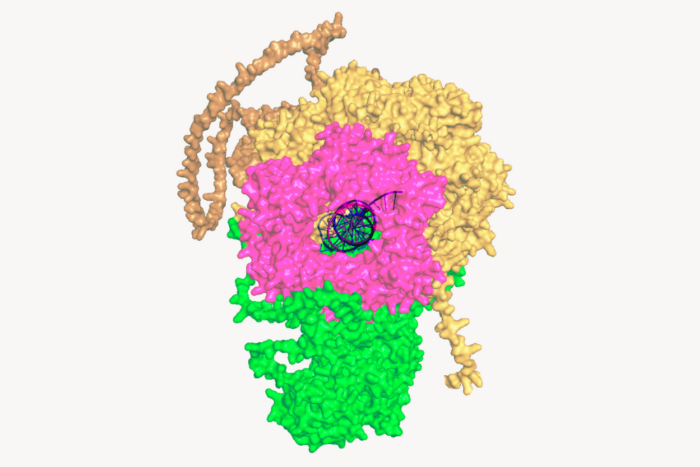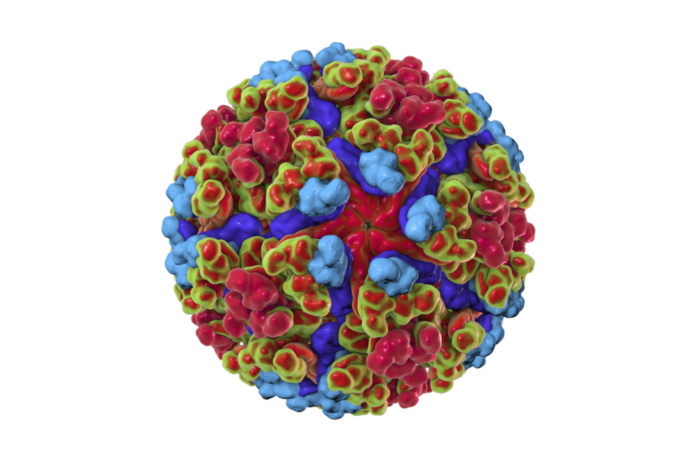Honorary degrees awarded to Gurdon, Robertson and Yamanaka
by ZACH VEILLEUX
In addition to 23 students, three seasoned contributors to basic science — two Nobel Prize winners and a philanthropist — received degrees from Rockefeller this year. In a tradition dating back more than five decades, the university awarded honorary doctorate of science degrees to distinguished individuals who have made notable contributions in their fields. The recipients were: John Gurdon, distinguished group leader, Wellcome Trust/Cancer Research UK Gurdon Institute and the University of Cambridge; Julian Robertson, founder and trustee of the Robertson Foundation and chairman and chief executive officer of Tiger Management, L.L.C.; and Shinya Yamanaka, professor and director, Center for IPS Cell Research and Application at Kyoto University and senior investigator of the J. David Gladstone Institutes.
Dr. Gurdon and Dr. Yamanaka are 2012 Nobel Prize laureates known for discoveries related to stem cells, and Mr. Robertson is an investor and philanthropist.

Third degree. John Gurdon (left), Julian Robertson (center, with President Tessier-Lavigne) and Shinya Yamanaka received honorary degrees this year.
Dr. Gurdon, through iconic experiments with nuclear transplantation, demonstrated that a differentiated cell contains all the genetic information needed to guide the development of an organism, as well as how a mature cell could revert to an embryonic state. His work helped to launch the modern fields of stem cell biology and therapeutic tissue regeneration. Dr. Gurdon has a Ph.D. in zoology from Oxford University and joined Cambridge University in 1972, where he has remained since. He is also chairman of the Wellcome Trust and the Cancer Research Campaign Institute of Cancer and Developmental Biology, which was named the Gurdon Institute in his honor in 2004.
“Rockefeller is justly regarded as one of the world’s most respected and successful universities by world standards,” Dr. Gurdon said. “Recognition by Rockefeller is an extremely special and memorable event.”
Mr. Robertson, an investor, environmentalist and philanthropist, is co-founder of Tiger Management, which he built from $8 million into one of the world’s largest hedge funds, with capital of more than
$23 billion. In 1996, with his late wife Josie, Mr. Robertson founded the Robertson Foundation to focus on high impact grants in education, the environment and medical research. Among the foundation’s major initiatives are active support of New York City’s public education reform, scholarships at Duke University and the University of North Carolina at Chapel Hill, combating global warming, and funding medical research at Memorial Sloan Kettering Cancer Center and Rockefeller. He has been a member of Rockefeller’s Board of Trustees since 2001.
“The idea of any of us changing the world could be categorized as the ultimate conceit,” Mr. Robertson said. “But in essence it is not about grand gestures but about simple, disciplined acts performed every day.”
Dr. Yamanaka discovered that just four genes have the ability to re-program adult skin cells, allowing them to become induced pluripotent stem cells (iPS cells), a state similar to that of embryonic stem cells. Like embryonic stem cells, iPS cells have the capacity to differentiate into multiple cell types within the body, and they are a potential source of matched tissue for therapeutic transplantation. Dr. Yamanaka received his medical degree from Kobe University and his Ph.D. from Osaka City Graduate School. He has been on the faculty of Osaka City University Medical School, the Nara Institute of Science and Technology and the University of California, San Francisco.
“As the director of a newly established institute, I want to recruit outstanding scientists, I want to promote collaborations, I want to encourage our scientists to perform high-risk, high-reward projects, and I want to attract as many talented students as possible and help them to become brilliant scientists,” said Dr. Yamanaka. “All of this is very difficult; however all of this was successfully done here at Rockefeller University. And that’s why I am here today.”


